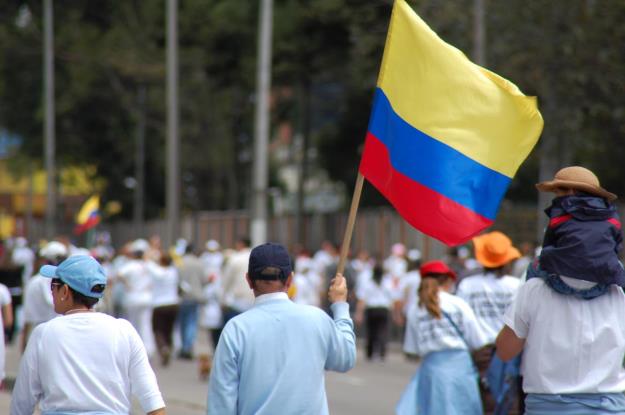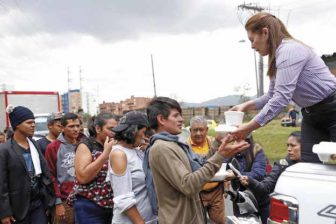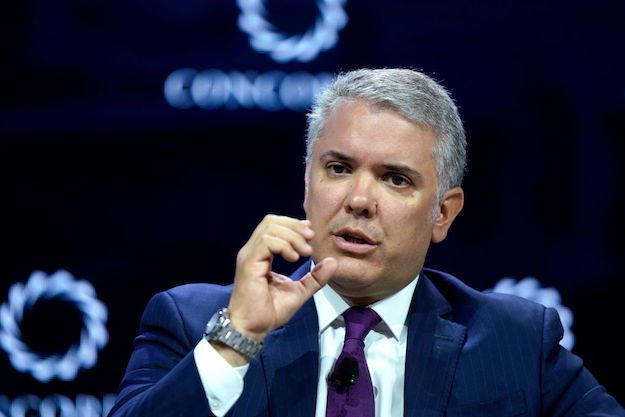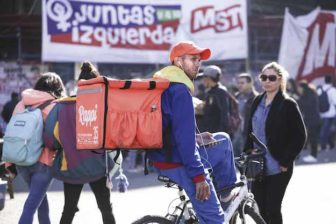Implementing peace was always going to be harder than negotiating it. But in the three months since Colombia’s Congress endorsed a deal to end more than 50 years of conflict with the Revolutionary Armed Forces of Colombia (FARC), the country’s fragile peace process has already been put to a chilling test.
Since Dec. 1 of last year, at least 20 social activists and community leaders have been killed in mostly rural areas across the country in what analysts say is an effort by paramilitary groups to suppress the implementation of the accords.
“The current situation is extremely fragile,” Kristian Herbolzheimer, an analyst at London-based peace-building consultant Conciliation Resources, told AQ via email. “Powerful sectors remain opposed to the peace process.”
Many of those killed were rural leaders who had been preparing their communities for the implementation of justice and land reform provisions included in the deal. One example is Hernán Agames, the leader of a local farmworkers association in northern Colombia who was shot and killed by four unknown assailants while walking home on Jan. 19. Agames had been an active advocate for rural interests ahead of the deal’s implementation.
Indeed, a majority of those murdered in recent months have been outspoken farmers in Colombia’s poorest and most conflict-affected regions, zones where the FARC previously held sway and had in some cases assumed the role of local government. Most, like Agames, were also members of the Patriotic March, a leftist social movement with loose ties to the FARC. Its leadership sees the attacks as a deliberate attempt to rupture the peace deal.
“I am deeply scared about the implications for the peace deal’s implementation” Andrés Gil, a national spokesperson for the movement, told AQ. Gil compared the most recent attacks to a similar wave of political violence that occurred the last time the FARC tried to enter politics.
In the late 1980s, at least 2,000 members of the Patriotic Union political party, co-founded by the FARC and the Colombian Communist Party, were murdered by right-wing paramilitaries, often acting alongside the state. Many in Colombia refer to what happened then as a political genocide, though Gil is hesitant to use the term to describe the recent attacks. “I wouldn’t call this a political genocide, but it is a concerted effort of political extermination.”
While most of the crimes remain unresolved, analysts say neo-paramilitary groups are largely responsible for the surge in violence. The United Self-Defense Forces of Colombia (AUC), a now-demobilized federation of right-wing paramilitary groups, was organized in 1997 to defend wealthy landowners from FARC militants, who would frequently target them with violence and extortion. But observers say a 2006 demobilization agreement with the AUC, enacted by former President Álvaro Uribe (a hardline critic of the current FARC deal), was too lax. Partly as a result, thousands of fighters chose not to turn in their weapons and instead formed successor groups that still exist today.
The most prominent of those is the Gaitanist Self-Defense Forces of Colombia (AGC), which began violently expanding in areas of FARC control while the rebels were in peace talks with the government. The AGC, which claims to have 8,000 members (the real figure is likely lower), has taken responsibility for many of the attacks, distributing threatening pamphlets in areas where the FARC remains popular with locals.
A similar but smaller AUC successor group, the Águilas Negras, or Black Eagles, has also begun circulating intimidating pamphlets. AQ was shown one that included the phrase “we will not rest until Colombia is free of human rights defenders.”
Leftist Senator Iván Cepeda, whose father – himself a former senator – was assassinated by paramilitaries in 1994 as part of the purge of Patriotic Union affiliates, said the recent attacks are reminiscent of the political violence many hoped had been relegated to Colombia’s past.
“Political violence has been a constant in the life of this country, and it has to do with the persecution of the opposition and of social leaders,” he told AQ from the Capitol building in Bogotá. “It’s obvious that there is a systematic action to combat the implementation of the peace accords … and yes, evidently it has a paramilitary component.”
Another motive for the attacks could be to drown out calls for improved land rights for Colombia’s rural class, Cepeda said. Over more than five decades of conflict, land was often illegally obtained by elites through the use of paramilitaries who, under the terms of the peace deal, could now be investigated. In late January, a land restitution activist in the coastal town of Turbo was abducted and killed, in what appeared to be an attempt to silence him.
Despite the anxiety generated by the recent spate of violence, members of the FARC are tentatively optimistic that it won’t lead to a return war. “The (peace) process is not going to end because of this,” a senior FARC member from the Southern Bloc told AQ on condition of anonymity. “What is certain is that the murder of social campaigners is having a negative effect on the process because it generates a political uncertainty and a lack of confidence towards the government, which people don’t see as having a clear will to disrupt and eradicate the paramilitary phenomenon.”
—
Parkin Daniels is a freelance reporter based in Bogotá








